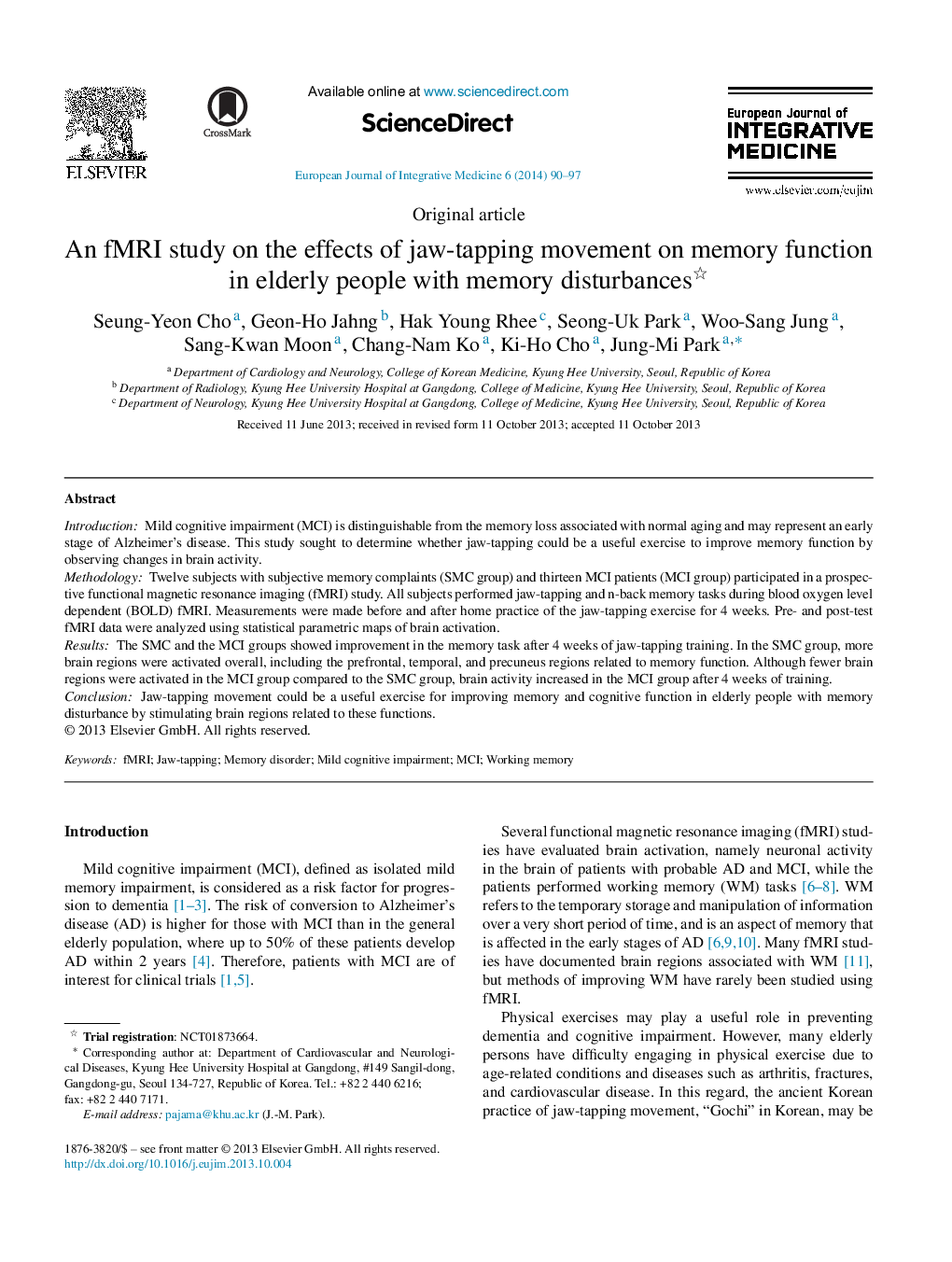| Article ID | Journal | Published Year | Pages | File Type |
|---|---|---|---|---|
| 2479852 | European Journal of Integrative Medicine | 2014 | 8 Pages |
IntroductionMild cognitive impairment (MCI) is distinguishable from the memory loss associated with normal aging and may represent an early stage of Alzheimer's disease. This study sought to determine whether jaw-tapping could be a useful exercise to improve memory function by observing changes in brain activity.MethodologyTwelve subjects with subjective memory complaints (SMC group) and thirteen MCI patients (MCI group) participated in a prospective functional magnetic resonance imaging (fMRI) study. All subjects performed jaw-tapping and n-back memory tasks during blood oxygen level dependent (BOLD) fMRI. Measurements were made before and after home practice of the jaw-tapping exercise for 4 weeks. Pre- and post-test fMRI data were analyzed using statistical parametric maps of brain activation.ResultsThe SMC and the MCI groups showed improvement in the memory task after 4 weeks of jaw-tapping training. In the SMC group, more brain regions were activated overall, including the prefrontal, temporal, and precuneus regions related to memory function. Although fewer brain regions were activated in the MCI group compared to the SMC group, brain activity increased in the MCI group after 4 weeks of training.ConclusionJaw-tapping movement could be a useful exercise for improving memory and cognitive function in elderly people with memory disturbance by stimulating brain regions related to these functions.
